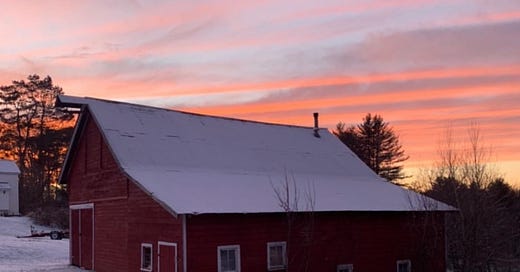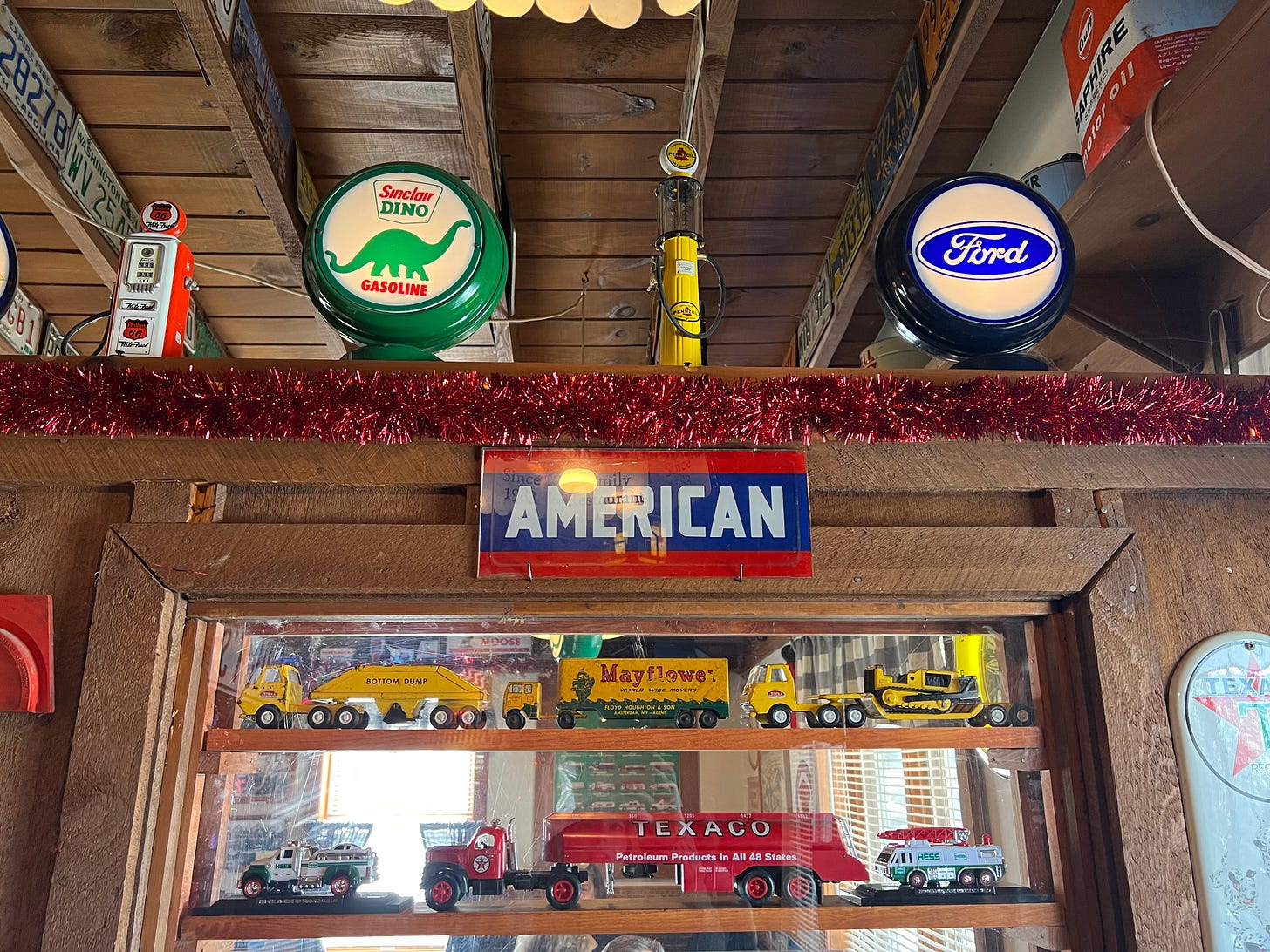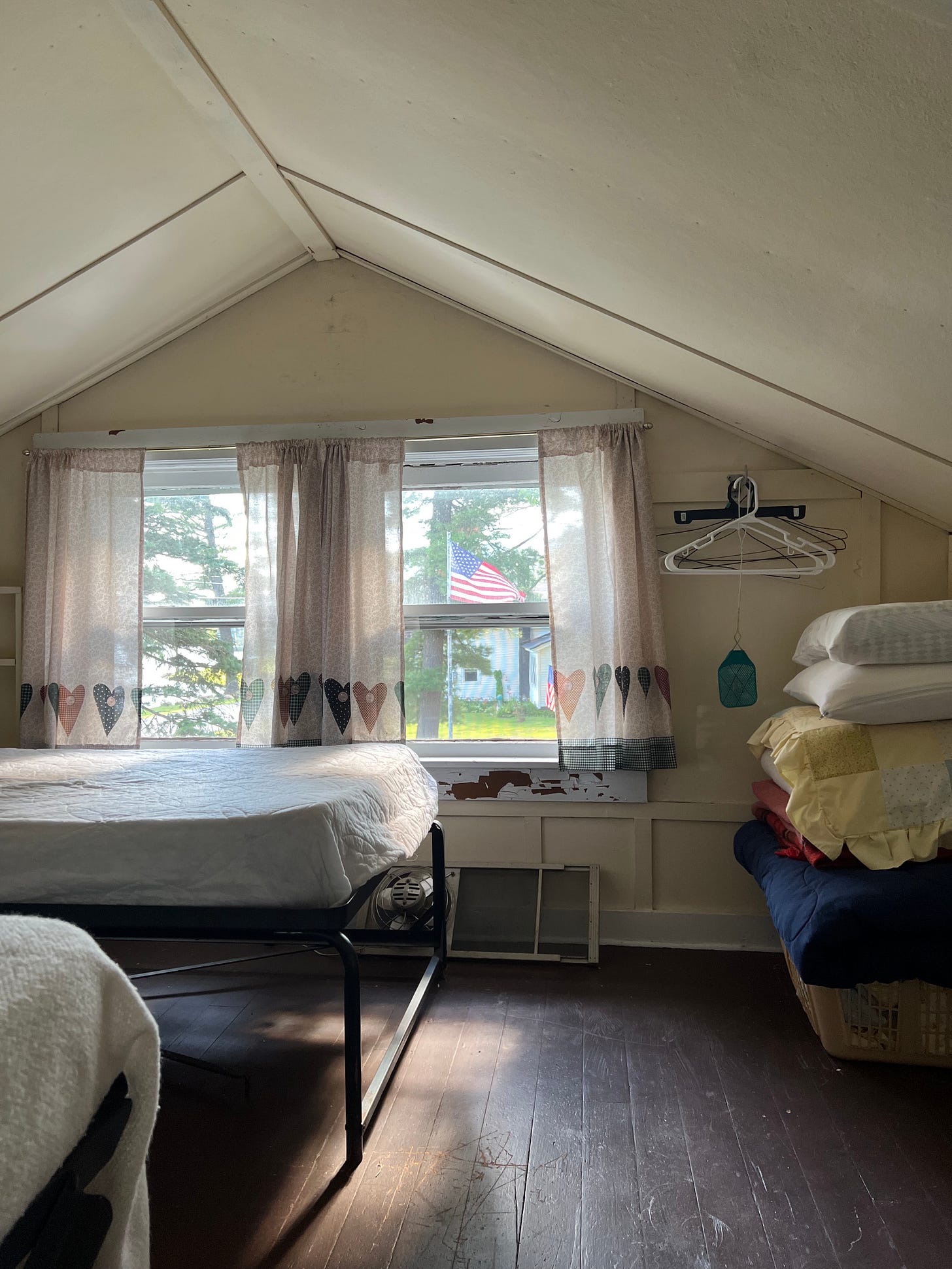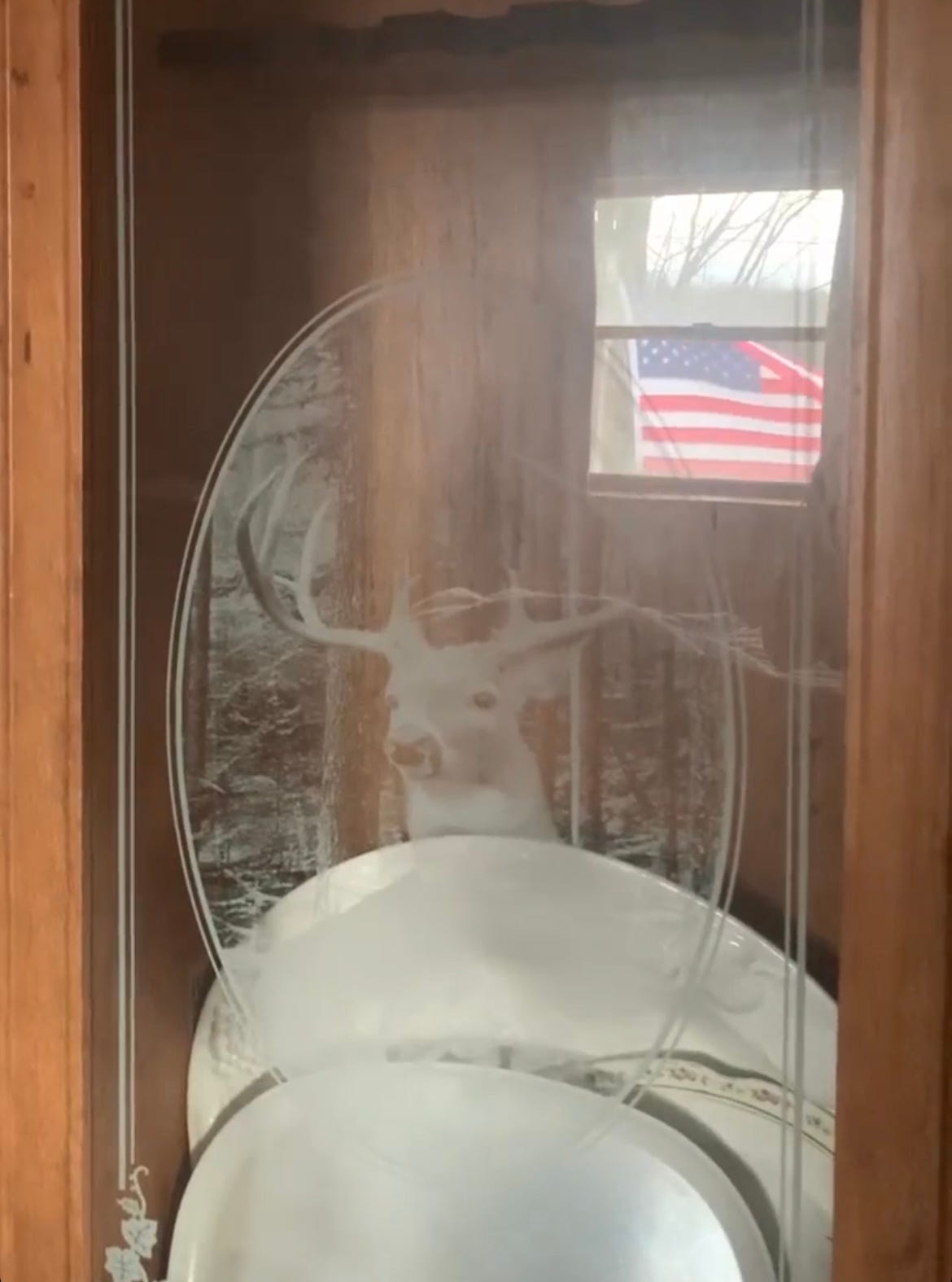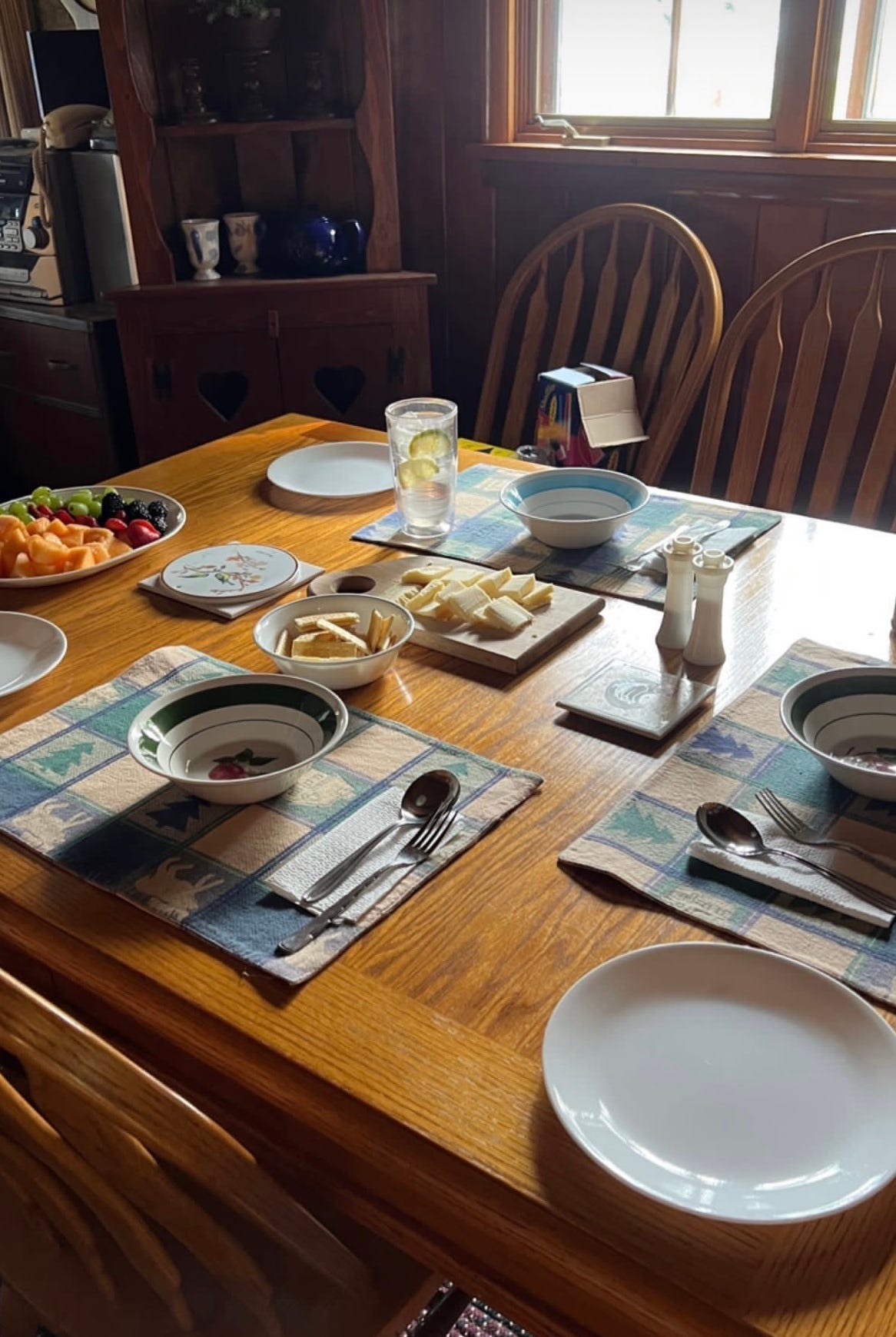There’s been a lot of negativity in the media about Evangelicals lately. From that book whose name I can’t even bear to type out (“White Rural Rage” — ugh), to another book about a young woman leaving her faith tradition, to a New York Times piece from January about Christians who no longer go to church, to the uproar over the “God Bless the USA” Bible promoted by the former president — it’s an election year, and that means the press is gearing up to blame those people again. For me it brings up the same feeling as walking down a sidewalk and hearing someone hock a loogie right behind you. They’re about to spit, and it’s going to land on me and mine.
None of this is surprising. It’s as predictable as the sun coming up every morning. But what shocks me is the readiness people have to form opinions — not even form opinions, but receive opinions — about people they don’t even know. They’ve never met an Evangelical. They’ve never spent time with one or broken bread with a rural Christian family. They don’t even know who they’re attacking.
All I can do is speak from the heart and from my experience about the Evangelicals with whom I’ve spent many months of my life. And there’s really only one thing to say about them.
They’re simply the best people I know.
They are loyal, humble, and hardworking. They’d give you not only the shirt off their back, but the roof over their heads and the warmth from their woodstove. They’d give you a place to go when you had nowhere else and no pillow to lay your head on. I know because it happened to me.
A couple of years ago, when the pandemic was finally beginning to wane, I lived with my second cousin and her husband in upstate New York for four months. I wanted to go back to the area my family is originally from: a small county in the center of the state that really has more in common with the Rust Belt or the Midwest than anything south of Westchester. Getting up there from the City took longer than I had remembered. It’s at the bottom of the Adirondacks, and in many ways feels like a different planet. When I called my cousin, the first place she told me to meet was a restaurant called Hope Diner.
She and her husband are closer to the age of a grandpa and grandma than that of a peer. They have gnarled hands, walk carefully, and their kids left the house a long time ago. One of their sons drives a truck for Frito-Lay and the other used to work at a tire place. I think he works for an insurance company now.
They willingly took me in even though I hadn’t seen them since my grandfather’s funeral, even though I didn’t have a plan, even though they didn’t really know me. They understood I was looking for my next step, and through that profound sense of duty that links family, they welcomed me.
I almost can’t think of their house now without remembering how happy I was there, how peaceful their life was, or how good their kitchen smelled when a pie was on the counter or hamburger soup was in the Crock-Pot (affectionately called the “crackpot”). I fell asleep to the sound of them watching reruns of “Blue Bloods” and the chime of multiple grandfather clocks. Even though I was staying in the attic, the husband made sure every night that there was enough heat coming from the pipe that connected my room to the fire he’d started from scratch downstairs.
They never asked me when I’d be leaving or any other invasive question. They respected my freedom. Weekdays were monotonous and quiet, if we didn’t take a drive to a nearby farm to buy applesauce or donuts, and on Sundays we all put on our best and went to church, the car heavy with the scent of cologne. In the afternoons I often took an hour-long walk around the neighborhood.
What I witnessed there was very instructive. I observed deep familial bonds that a depressed economy cannot break, and faith that cannot be shaken no matter what more “sophisticated” people think. I saw small businesses that people trusted, houses of worship that were filled to the brim, and common sense that eluded most Manhattanites.
Although the area was already post-industrial in the 1990s when my parents left, certain parts of it had degraded even further. On my walks around the block, on the other side of the street from quaint family homes I saw a collection of trailers with a “Trump 2020: No More Bullshit” flag hanging from someone’s window. Stray cats roamed that dead end and assorted household debris was scattered across the patches of grass that separated neighbors — pots, pans, old strollers. The single-wide facing my cousins’ house had a flag of Trump wielding a machine gun hanging from its back deck.
I saw people who mostly wanted to be left alone — who wanted stable jobs to support their families, and to enjoy those families in peace. I witnessed no menacing, threatening character that is so commonly depicted in mainstream media — no bigoted ogres denouncing others or wanting to control them.
That’s why I really don’t recognize the Evangelical caricatures mentioned in articles like the one in the Times from January. I’m not saying these interviews weren’t recorded accurately, or that these people don’t exist. I’m saying that quoting a few people who no longer go to church or who think of the former president as some kind of deity is as misrepresentative as amplifying the worst blue-hairs on TikTok and pretending they represent all gay or trans people. Most people are just trying to live their lives — or more accurately, to make a living. They’re not activists and they’re not tyrannical. They want the basic things we all want: respect, prosperity, a safe life for their children.
If you’re reading this, and you’ve never met an Evangelical person, please don’t believe the image that exists in the media. That image is propagated by people who have an agenda — whether partisan, political, ideological, anti-religious, or just motivated by maintaining cultural dominance. Get to know someone before you calcify an impression of their community in your mind.
And please take economic grievance seriously. The economy might seem “ok” to you, but that doesn’t mean that just beyond the blinders you have on, that people aren’t struggling. The basic American contract and understanding is that if you work hard and serve others around you, you should be able to support a family and live a decent life. That contract is no longer operational.
I’m glad there are at least some voices in major journalistic outlets (Michael Powell in a recent essay for The Atlantic among them) that are willing to counter the myopic insistence that life in inflated America is just fine and dandy. Noting that “the average mortgage interest payment has increased threefold since 2021” and that the “combination of high prices and high interest rates has shut many Americans out of homeownership altogether,” he also observes that “the suggestion that wealthy corporations should bear more of the pain, and the working class less of it, has come to sound radical to some economists.” He quotes the “iconoclastic” UMass Amherst professor Isabella Weber who says that despite the proclamations from on high that everything is fine, “people sense the injustice” and many Americans feel like “I did all the things I’m supposed to do, and I still can’t afford this life.” To ignore this or callously refute it is to “deny the pain experienced” by many of our fellow citizens, he writes.
Similarly, an offering last week in Jacobin addressed the “deflection of responsibility” by the party that used to protect the interests of the working class and the defection from that party by increasing numbers of “black, Latino, and Asian voters.” Rather than reexamining their own perspective, it is easier for many Democrats to “blame ‘fascism’ (or ‘white rural rage,’ or ‘deplorables,’ or ‘Christian nationalists’) for causing our country’s problems than the deregulatory, financialized, and militarist neoliberalism of Bill Clinton and Barack Obama.” A particularly cutting Matt Taibbi entry on Substack claimed that the press is involved in a “perception campaign” that repudiates “decades of accumulated frustrations” stemming from assorted “phenomena that widened inequality.”
When I ask my cousin’s husband what he thinks of any given politician, he has a stock answer: “He’s crooked-er than a dog’s back leg.” And as for his thoughts on former President Trump? “He’s a jackass, but I’d vote for him again,” he says. “We need someone who’s willing to change the economy.”

